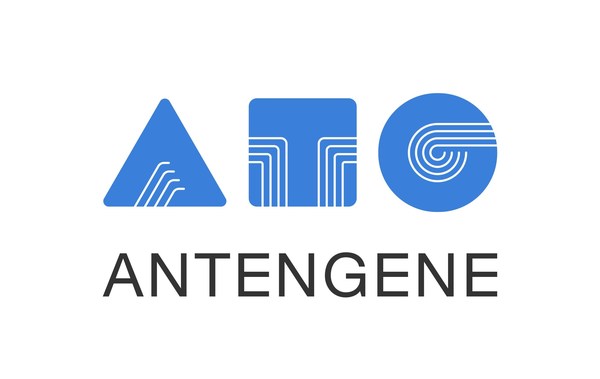 |
SHANGHAI and HONG KONG, July 22, 2021 /PRNewswire/ -- Antengene Corporation Limited ("Antengene", SEHK: 6996.HK), a leading innovative biopharmaceutical company dedicated to discovering, developing and commercializing global first-in-class and/or best-in-class therapeutics in hematology and oncology, today announced that the Bellberry Human Research Ethics Committee (HREC) in Australia has approved the clinical trial application of the phase 1 trial of ATG-101 in patients with metastatic/advanced solid tumors and B-cell non-Hodgkin's lymphoma (B-NHL). This approval marks an important milestone for Antengene as ATG-101 is the in-house developed innovative molecule with global rights entering clinical stage. In addition, ATG-101 is the first PD-L1/4-1BB bispecific antibody entering clinical stage in Australia. This multi-center, open-label, Phase I trial is designed to evaluate the safety and tolerability of ATG-101 as a single agent in patients with advanced solid tumors and NHL.
According to the World Health Organization's (WHO) estimates, there were approximately 19.3 million diagnoses of cancer and 10 million cancer-related deaths worldwide in 2020 and most of the top 10 cancer types were solid tumors. As the most common blood cancer, non-Hodgkin lymphoma accounted for 544,000 new cases and 260,000 deaths in 2020 globally with some of the highest incidence rates reported in Australia and New Zealand. Since the majority of cancers become resistant or refractory to conventional therapies (including hormonal treatments, chemotherapy regimens and monoclonal antibodies), there remains enormous unmet needs in the treatment of patients with this disease. While immuno-oncology therapy has improved patient outcomes dramatically over the last 10 years, a growing body of evidence also has shown that bispecific antibodies have the potential to be effective treatments for multiple malignant cancers.
ATG-101, a novel PD-L1/4-1BB bi-specific antibody, can activate anti-tumor immune effectors by blocking the immunosuppressive binding of PD-L1 to PD-1 while at the same time activating 4-1BB immunostimulatory signals, thereby enhancing safety and efficacy. Preclinical studies showed that ATG-101 could activate 4-1BB in a very controlled manner in human peripheral blood mononuclear cells (PBMC). Testing in various animal models, including those resistant to or progressing on anti-PD(L)1 treatment, has confirmed the potent in vivo anti-tumor activity and safety of ATG-101. In addition, in vivo testing has shown that ATG-101 can increase the number of CD8+ T-cells and reduce regulatory T-cells (Treg), a unique mechanism of action that enhances anti-cancer immune profile and can potentially improve treatment outcomes.
Dr. Jay Mei, Founder, Chairman and CEO of Antengene, said "Having gained approval for this first-in-human trial of ATG-101 as planned marks a milestone achievement that validates Antengene's capability in effectively advancing preclinical programs. Exploring a novel mechanism of action, multiple bispecific antibodies have begun entering clinical development in recent years. Compared to monoclonal antibodies, bispecific antibodies have the advantages of being able to target multiple epitopes, with a lower production cost and shorter production cycle than using a combination of conventional monoclonal antibodies, therefore representing a novel therapeutic approach with enormous clinical potential. We have observed that ATG-101 has anti-tumor activities in vivo and in vitro and so we are very enthusiastic to test this approach in the clinic. We will advance the clinical development program and prepare to submit Investigational New Drug (IND) applications for ATG-101 in the U.S. and China this year."
About ATG-101
ATG-101 is a novel PD-L1/4-1BB bi-specific antibody being developed for the treatment of cancer. ATG-101 can activate anti-tumor immune effectors by simultaneously blocking PD-L1/PD-1 binding and inducing 4-1BB stimulation. In the presence of PD-L1 over-expressed cancer cells, ATG-101 has shown a significant and PD-L1 crosslinking-dependent 4-1BB agonist activity, thus enhancing therapeutic efficacy, and mitigating hepatoxicity simultaneously.
About Antengene
Antengene Corporation Limited ("Antengene", SEHK: 6996.HK) is a leading clinical-stage R&D driven biopharmaceutical company focused on innovative medicines for oncology and other life-threatening diseases. Antengene aims to provide the most advanced anti-cancer drugs to patients in the Asia Pacific Region and around the world. Since its establishment in 2017, Antengene has built a broad and expanding pipeline of clinical and pre-clinical stage assets through partnerships as well as in-house drug discovery and obtained 15 investigational new drug (IND) approvals and submitted 6 new drug applications (NDA) in multiple markets in Asia Pacific. Antengene's vision is to "Treat Patients Beyond Borders". Antengene is focused on and committed to addressing significant unmet medical needs by discovering, developing and commercializing first-in-class/best-in-class therapeutics.
Forward-looking statements
The forward-looking statements made in this article relate only to the events or information as of the date on which the statements are made in this article. Except as required by law, we undertake no obligation to update or revise publicly any forward-looking statements, whether as a result of new information, future events or otherwise, after the date on which the statements are made or to reflect the occurrence of unanticipated events. You should read this article completely and with the understanding that our actual future results or performance may be materially different from what we expect. In this article, statements of, or references to, our intentions or those of any of our Directors or our Company are made as of the date of this article. Any of these intentions may alter in light of future development.